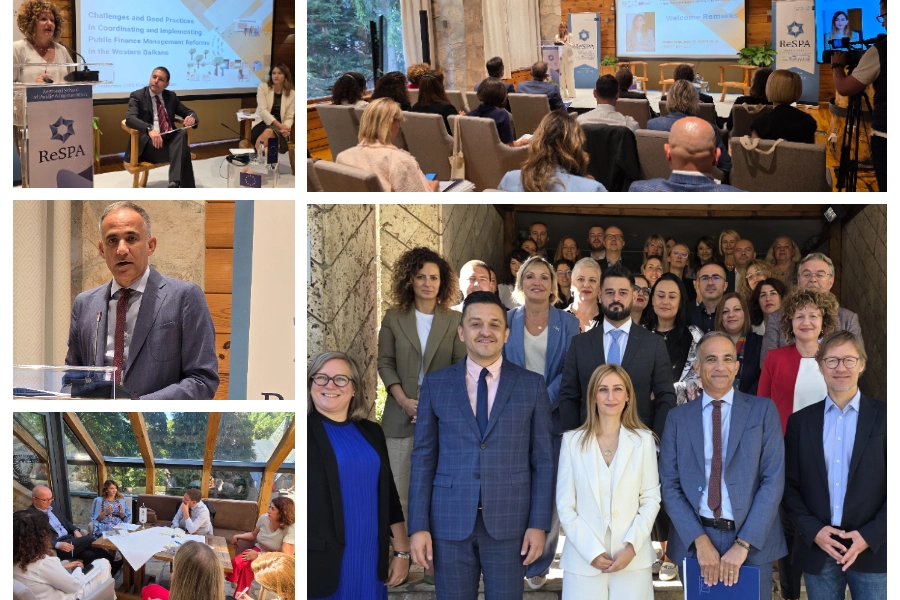
Regional Conference on PFM Reforms in the Western Balkans: Strengthening Commitment to Good Governance and EU Integration
2–3 September 2025, Kolašin, Montenegro
Policymakers, experts, and practitioners from across the Western Balkans gathered at the Regional Conference on “Challenges and Good Practices in Coordinating and Implementing Public Finance Management Reforms in the Western Balkans”, organised by ReSPA in partnership with cooperation with the Ministry of Finance, Montenegro, SIGMA/OECD, the International Monetary Fund, and the Center for Excellence in Finance (CEF).
Opening the Conference, Montenegro’s Minister of Finance, Novica Vuković, underlined the transformative importance of public finance management for the EU integration agenda: “Sound PFM is a cornerstone of transparency, fiscal discipline, and public trust. We must continue to strengthen institutions and align reforms with European standards.”
ReSPA Director, Maja Handjiska-Trendafilova, emphasised that regional cooperation is a decisive factor in advancing reforms: “Public Finance Management is not simply about numbers and procedures. At its core, it is about trust – trust that public resources are managed efficiently, transparently, and in a way that truly serves citizens. For our region, which continues to advance on its path towards EU membership, building sound and sustainable PFM systems is both a necessity and a strategic priority.”
She also expressed gratitude to the Government of France for its ongoing support, welcoming Noémie Lebreton-Pinsolle from the French Ministry of Finance, who presented France’s experience in reinforcing strategic coordination and oversight in PFM.
Ricardo Serri, Deputy Head of the EU Delegation to Montenegro, emphasised that citizens want budgets that reflect their needs, institutions that act with integrity, and services that are delivered fairly and efficiently: “The path to the EU is, at its core, a path toward those expectations. As such, PFM reform is not just a box to tick in Brussels—it is a foundation for stronger democracies, fairer societies, and more resilient economies. The EU not only prescribes conditions to be fulfilled, but also supports these efforts by providing resources, expertise, and political support to the Western Balkan countries.”
From a regional perspective, Mr Klas Klaas (SIGMA/OECD) shared findings from the 2024 SIGMA Monitoring Reports, pointing out both achievements and persistent challenges in coordinating and implementing reforms across the Western Balkans.
The programme included highly interactive sessions: a World Café discussion on the preparation and implementation of PFM strategies, and a panel on public procurement reforms, which shed light on integrity, challenges, and best practices.
The second day focused on public investment management and financial risk management, with in-depth presentations from Jamie Carter (Regional PFM Advisor, IMF Fiscal Affairs Department), joined by Jelena Jovetić (Director General for Public Investment and Public Procurement Policy, Ministry of Finance of Montenegro) and Minas Trubljanin (Director General for Central Harmonisation and Development of Internal Controls, Ministry of Finance of Montenegro).
Each Western Balkan administration also presented its experiences in modernising tax policy and administration, identifying challenges and sharing good practices, which were distilled into concrete recommendations for more coherent, transparent, and sustainable reforms.
In closing, ReSPA Programme Manager, Jelena Mrdak, stressed the long-term value of the event: “I am confident that the lessons, exchanges, and networks we build here in Kolašin will further strengthen the regional ownership of reforms and reinforce our shared commitment to good governance and EU integration.”



